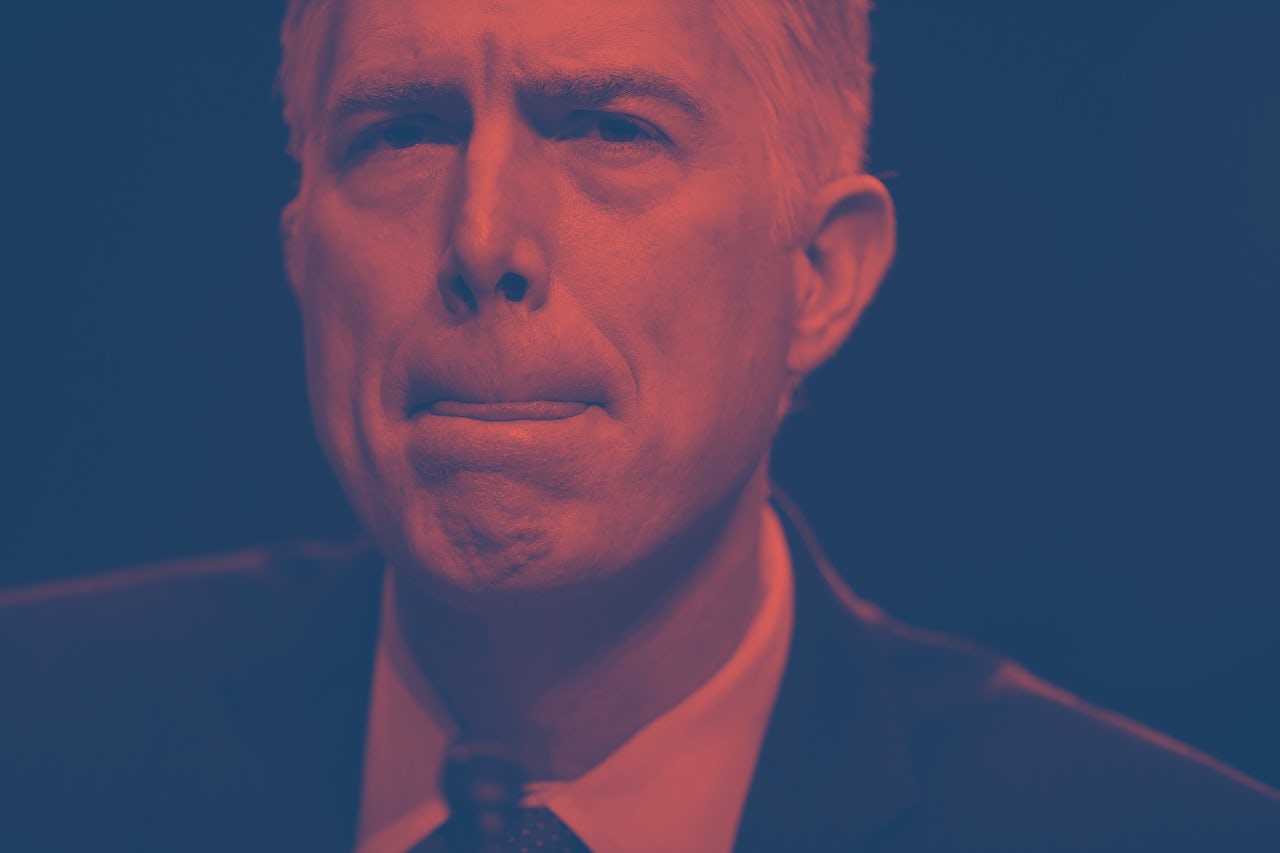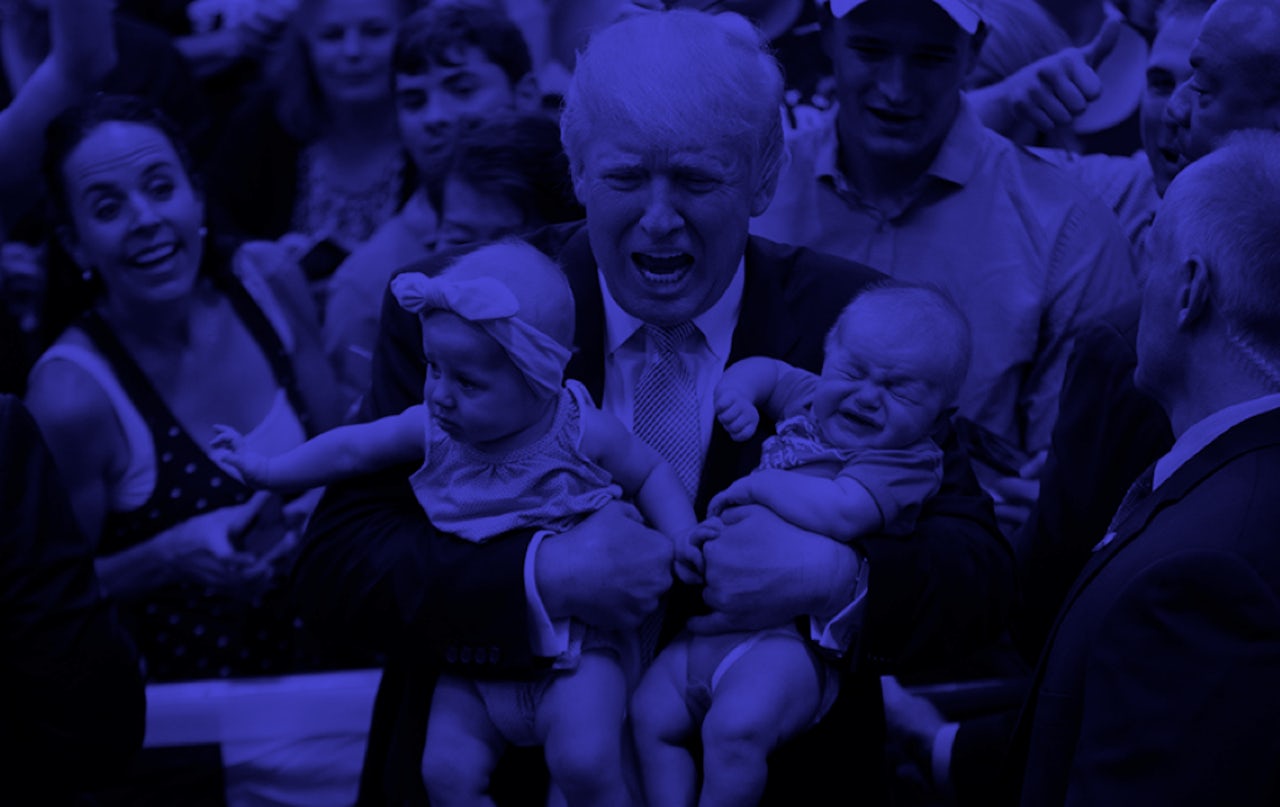Whether or not Neil Gorsuch made misogynistic comments about maternity leave is now, and likely forever will be, in the realm of he said/she said. Two former students accused the Supreme Court nominee of doing so in highly specific terms, and Gorsuch strongly denied it at his confirmation hearing on Tuesday. Either way, the controversy has brought paid family leave, already a hot topic in the executive and legislative branches, into hearings about the judicial.
The allegations themselves are highly unflattering to Gorsuch. On Sunday night, a letter sent to the Senate Judiciary committee by a former student of Gorsuch’s at the University of Colorado alleged that Gorsuch said in class last April that “‘many’ women use their companies for maternity benefits and then leave the company after the baby is born.”
The student, Jennifer Sisk — who has also worked as an aide to former Democratic Sen. Mark Udall — wrote that “Judge Gorsuch told the class that not only could a future employer ask female interviewees about their pregnancy and family plans, companies must ask females about their family and pregnancy plans to protect the company.”
Sisk complained to administrators at the time, and her claims were supported by a second student who filed a strongly worded anonymous declaration to the committee and called Gorsuch’s class discussion “strongly gendered.” The anonymous student said that Gorsuch singled out women in the class and asked how their future pregnancies would impact their employers, and how they would care for their children.
“He … said that many female lawyers became pregnant, and questioned whether they should do so on their law firms’ dime,” the second accuser wrote.
“I am familiar with the difference between a law professor expressing his or her own views on a subject, as opposed to a law professor’s making provocative or controversial statements as a way to generate student comments and debate. Judge Gorsuch presented his discussions on the issues of female lawyers’ pregnancy, the impact of those pregnancies on their law firms … as the way he personally felt about those issues.”
Gorsuch pushed back against these allegations in an exchange with Illinois Sen. Dick Durbin. A male student also wrote a letter in his defense.
The flap comes as the broader issue of family leave has become a more central one in American business and politics. Over the past few years, private companies and a few local governments have made huge strides in offering paid family leave for women and men, leaving advocates optimistic about the future of the movement.
“Paid parental leave has really just exploded,” Brad Harrington, executive director of the Center For Work and Family at Boston College, which does the most extensive research on trends in modern parenting, told me last May. “With the exception of gay marriage, this is probably the fastest-moving social trend in America.”
Harrington said this during a very different moment for the country, when the idea of a President Trump being in a position to nominate Supreme Court justices seemed a remote possibility. Barack Obama had recently called for a national “maternity and paternity leave” policy, and companies from Netflix and Ernst and Young to Twitter and Etsy were racing each other to offer better leave packages.
Facebook CEO Mark Zuckerberg, whatever his motivations, made a big public point of taking time off following the birth of his daughter. The city of San Francisco and the state of New York enacted progressive paid leave laws. (The federal government only guarantees 12 weeks of unpaid leave under the Family Medical Leave Act).
The benefits of both parents spending time with their child in the weeks and months after birth are enormous, according to experts — basically, an equitable division of labor between partners is often either established right away or not at all.
“Right after women have children, all kinds of dynamics kick into place,” Harrington told me last year. (Through a colleague, he declined on Tuesday to weigh in on Gorsuch’s comments, saying he had not had time to thoroughly read and consider them.) “You start those in motion, and then it’s like automatic pilot.”
While Ivanka Trump presented herself as enlightened on this issue during the campaign and said she would push for a paid leave policy, her father’s proposal came under harsh criticism from advocates. The ACLU wrote that by proposing only six weeks partial pay for married birth mothers only, “the proposal is as inadequate as it is discriminatory.”
An equitable division of labor between partners is often either established right away or not at all.
Senate Democrats this month proposed a better bill, with paid leave for both parents, and are lobbying Ivanka Trump to help them.
Meanwhile, the president has bragged about never changing a diaper. “There’s a lot of women out there that demand that the husband act like the wife, and you know, there’s a lot of husbands that listen to that,” Donald Trump said on the Opie and Anthony radio show in 2005, when his wife, Melania, was pregnant with their son, Barron. “If I had a different type of wife, I probably wouldn’t have a baby, ya know, ’cause that’s not my thing. I’m really, like, a great father, but certain things you do and certain things you don’t. It’s just not for me.”
Now, Trump has nominated a judge accused of holding contempt for the idea of paid family leave. With all three branches of government suddenly leaning back to the last century, easier days for the American family seem much farther away than a year ago.

